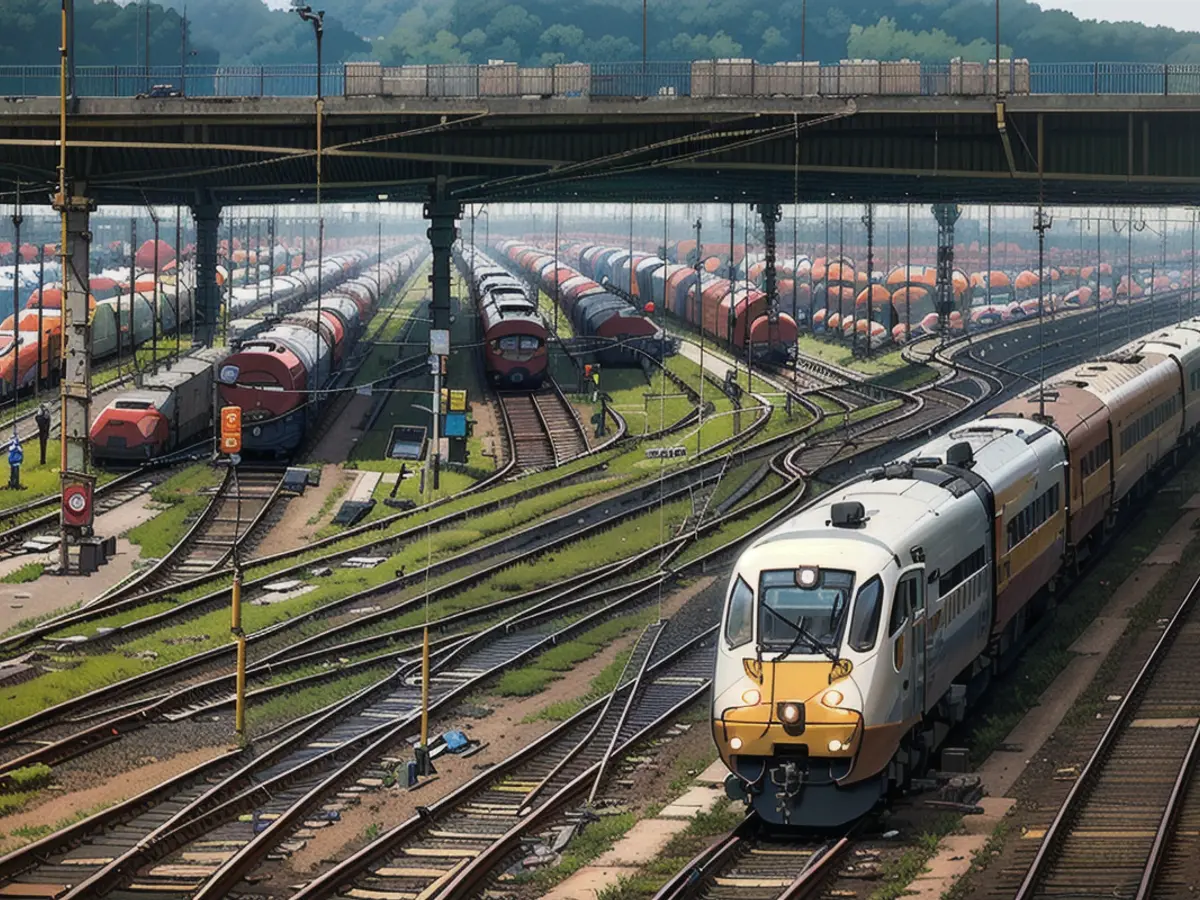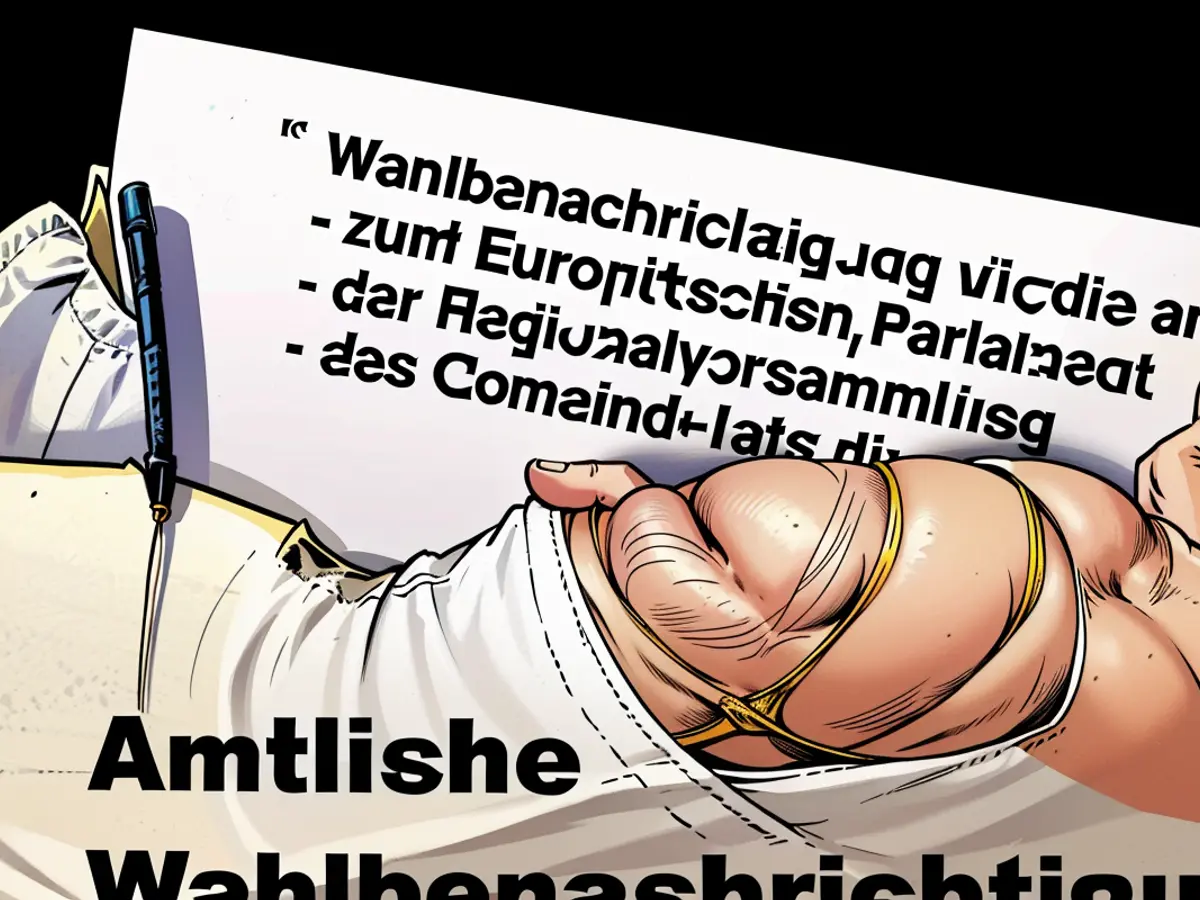The Court of Auditors has admonished Wissing for his railroad transactions.
The German administration has had big plans for growing the rail network, but a recent report suggests that the limited budget is slowing down its progress. The report goes on to mention that certain crucial projects may need to be shelved. Additionally, Federal Audit Office is giving Transport Minister Wissing a hard time, claiming his dealings with Deutsche Bahn are inadequate.
As reported by "Spiegel", the Federal Court of Auditors is not satisfied with the way Transport Minister Volker Wissing has been handling Deutsche Bahn affairs. The magazine shares findings from an audit report, which disapproves of Wissing's presentations and states that the efforts made so far to better the railroads are nothing more than an "illusion of reform." One of the reasons for this unsatisfactory situation is that Wissing's presentations are "incomplete" and "do not provide an accurate portrayal of the difficult financial and operational situation of DB AG."
In an attempt to improve the railways, the federal government has set up a new company named InfraGo, which would handle the operation, maintenance, and expansion of railway infrastructure. InfraGo will continue to be part of the DB Group, but the new company is intended to work on a "non-profit" basis. Federal government representatives will serve on the supervisory board. The Federal Audit Office believes that this setup is insufficient to "strengthen the federal government's ownership role in DB AG and more effectively represent its interests." Establishing InfraGo doesn't help with the urgent need to modernize the Group, it only consolidates a "glaring shortcoming in the existing Group structure."
For years there have been discussions around separating the DB Group into various entities, considering the serious complications. For example, the Monopolies Commission, a German government advisory body, had suggested separating the infrastructure management from the rail operations. It seems the Audit Office agrees with this approach, as they mentioned that the issues would not resolve "as long as the infrastructure division is part of the DB AG Group."
Money Issues
The financial issues of the federal government are likely to condemn its goals for expanding the rail network. A letter from the Ministry of Transport, accessible to "Der Spiegel," shows which projects might face budget troubles in the future.
Projects at risk include the linking of the Fehmarnbelt tunnel between Germany and Denmark, the creation of new Ruhr Valley Railway sections between Karlsruhe and Basel with a tunnel in Offenburg, the much-anticipated expansion of a major axis for the Rhine-Ruhr Express in Duisburg, and a freight railway route from Uelzen to Halle. Furthermore, the Gäubahn connection to the new Stuttgart underground station via the Pfaffensteigtunnel, the expansion of a railway line from Munich through Mühldorf to the Austrian border, and the electrification project from Weimar to Gößnitz via Gera could be jeopardized as well.
According to "Der Spiegel", planning a "construction financing agreement" is being considered for these projects. In theory, construction could commence, but a "final decision" will only be made when budgets for 2025 and 2026 are ready. However, the current budget situation and the Ministry of Finance's cost-cutting objectives make financial support highly unlikely, according to "Spiegel's" sources.
Rural Regions Losing Connectivity
Meanwhile, there are fewer cities in Germany linked to Deutsche Bahn long-distance services this year when compared to the previous year. The Federal Ministry of Transport has informed the Left Party budget politician Victor Perli about this. Among the cities losing these services are Northeim (Lower Saxony), Ibbenbüren (North Rhine-Westphalia), Bebra (Hesse), Rastatt (Baden-Württemberg), and Leverkusen-Mitte (North Rhine-Westphalia). Long-distance stops are planned for Ludwigsstadt (Bavaria), Rudolstadt (Thuringia), and Eichenberg (Hesse), while Heilbronn (Baden-Württemberg) will only see occasional services due to construction work.
The ministry insists that connections to the towns will still be possible through local public transport. Nonetheless, the tram light coalition's mission of boosting long-distance services in the region might be problematic, as the rising costs for infrastructure could encourage Deutsche Bahn to discontinue unprofitable intercity connections. Left-wing politician Perli is disappointed by this development, urging the Transport Minister to present a strategy for enhancing links to rural areas.
Read also:
- Lack of snow also opens up new opportunities for winter tourism
- Abrupt end to e-car subsidies
- The chemical industry has little confidence
- Intersport boss hopes for sales boom through sporting events
Source: www.ntv.de




